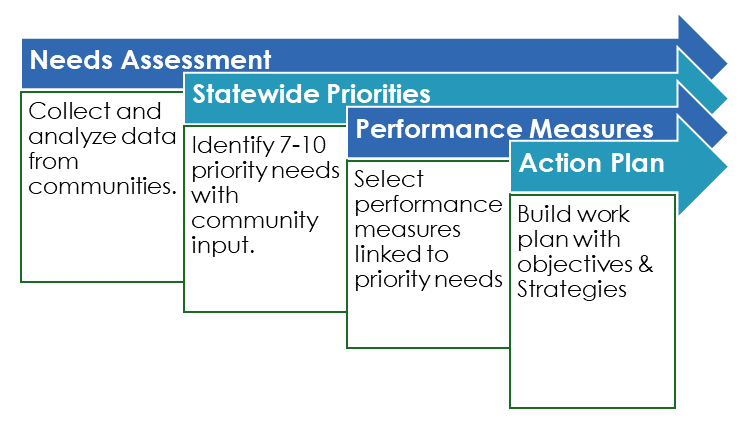- Home
- Health Initiatives
- Maternal And Child Health Block Grant Needs Assessment
Maternal and Child Health Block Grant Needs Assessment

Needs Assessment Process
Every five years, the state Department of Health conducts a comprehensive and participatory needs assessment to gather information on the health and wellness of women and mothers, children, youth, and families. This needs assessment informs the Title V Maternal and Child Health Block Grant (MCHBG) for the next five years by identifying statewide Maternal and Child Health priority needs.
Our goal is to work in collaboration with community members, families, external partners, and public health professionals across the state to better understand the needs of women, children, youth, and families living in Washington.

Community Engagement in the Needs Assessment
Discovery Survey
From fall 2023 to spring 2024, we collected information from the public through an electronic survey advertised on social media. The survey asked two questions:
- What are the most important things families need to live their fullest lives?
- What are the biggest unmet needs of families in your community?
2,347 people in Washington responded to the survey. Most were parents, including parents of children with special health care needs. There were survey responses from all but one county, and responses in 11 languages.
Summarizing the Data and Identifying Priorities
In fall 2024 we summarized the results of the Discovery Survey, interviews, and literature reviews and created data briefs. We met with local health jurisdiction (LHJ) partners to discuss and get feedback on priorities. Department of Health leadership then worked with maternal child health staff to develop top priorities for each MCHBG population domain and identify performance measures and a work plan for the next five-year grant period.
Priority Needs by MCHBG Domain
Women: Improve early identification, intervention, and prevention of maternal health risks by expanding access to timely, high quality care.
Perinatal/Infant: Enhance caregiver and infant well-being by strengthening social-emotional and economic supports for new parents and caregivers.
Child: Improve prevention and early intervention for child health challenges by expanding access to timely, family-centered health care.
Adolescent: Promote positive youth development and well-being by making it easier for youth to access and use health care services and resources that promote healthy relationships.
Children and Youth with Special Healthcare Needs (CYSHCN): Improve well-being of CYSHCN and their families by expanding access to comprehensive and coordinated health services and other supports.
